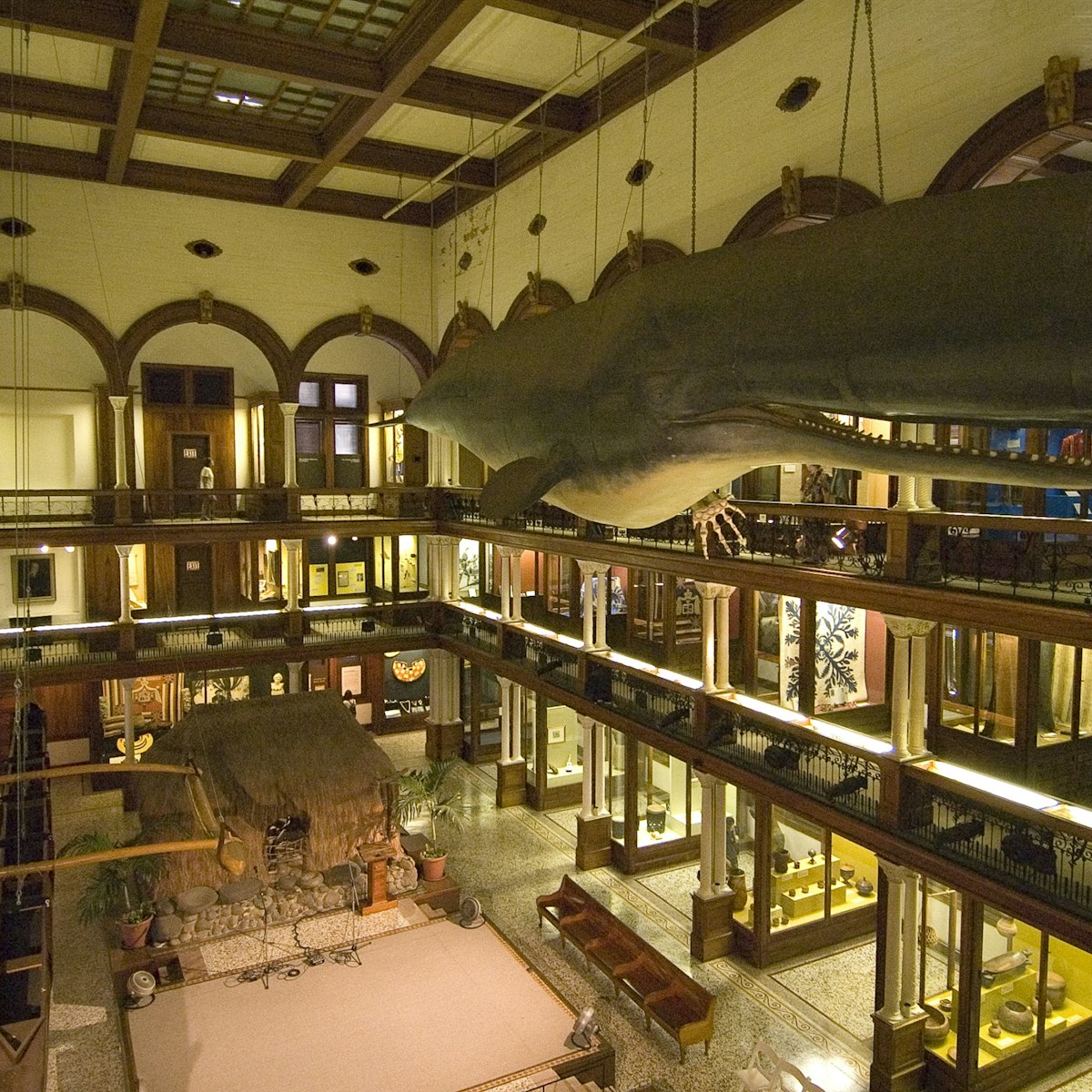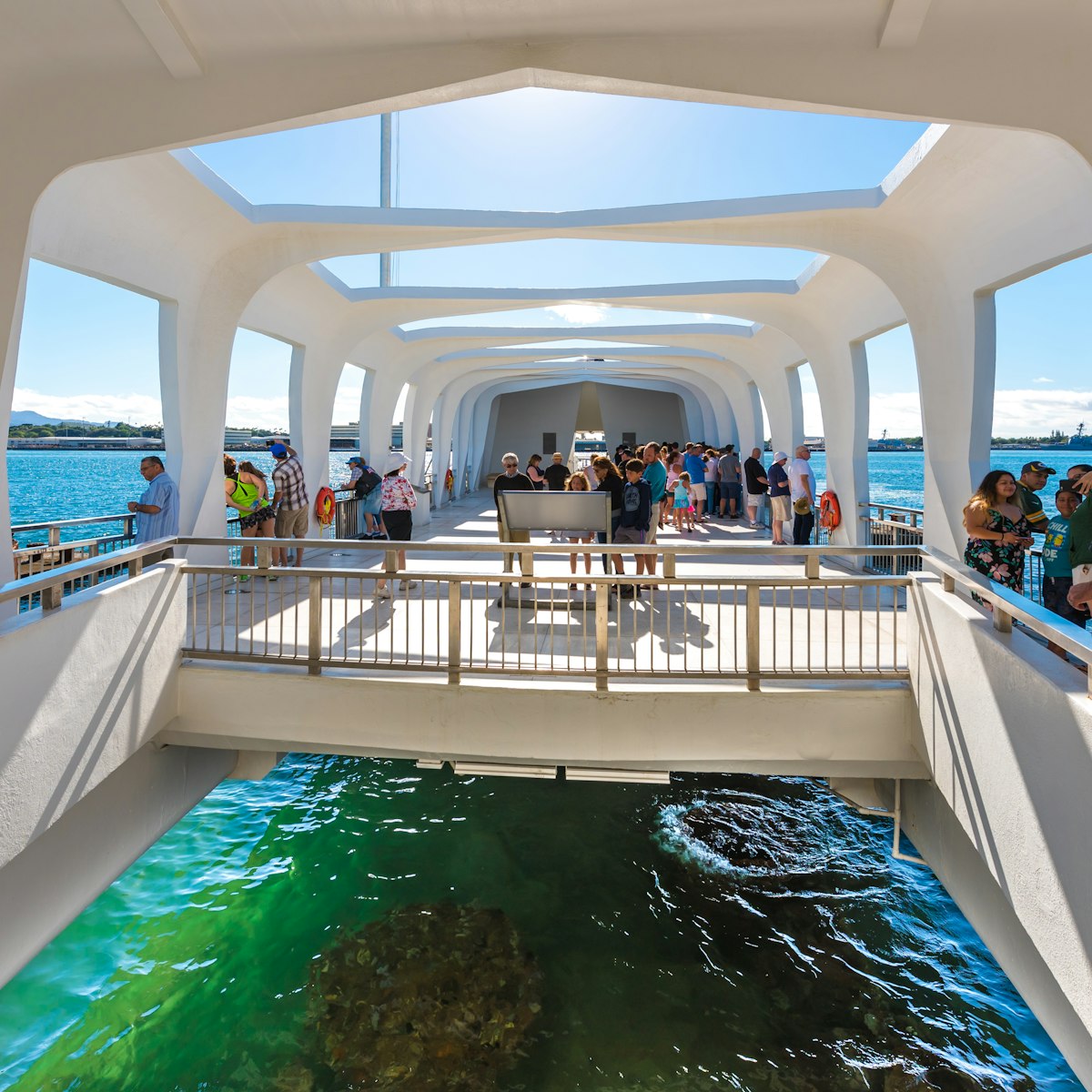No other place evokes a more poignant sense of Hawaii’s history. The palace was built under King David Kalakaua in 1882. At that time, the Hawaiian monarchy observed many of the diplomatic protocols of the Victorian world. The king traveled abroad, meeting with leaders around the globe, and received foreign emissaries here. Although the palace was modern and opulent for its time, it did little to assert Hawaii’s sovereignty over powerful US-influenced business interests, who overthrew the kingdom in 1893.
Two years after the coup, the former queen, Liliʻuokalani, who had succeeded her brother David to the throne, was convicted of treason and spent nine months imprisoned in her former home. Later the palace served as the capitol of the republic, then the territory and later the state of Hawaii. In 1969 the government finally moved into the current state capitol, leaving ʻIolani Palace a shambles. After a decade of painstaking renovations, the restored palace reopened as a museum, although many original royal artifacts had been lost or stolen before work even began.
Visitors must take a docent-led or self-guided tour (no children under age five) to see ʻIolani’s grand interior, including recreations of the throne room and residential quarters upstairs. The palace was quite modern by Victorian standards. Every bedroom had its own bathroom with flush toilets and hot running water, and electric lights replaced the gas lamps years before the White House in Washington, DC, installed electricity. If you’re short on time, you can independently browse the historical exhibits in the basement, including royal regalia, historical photographs and reconstructions of the kitchen and chamberlain’s office.
The palace grounds are open during daylight hours and are free of charge. The former barracks of the Royal Household Guards, a building that looks oddly like the uppermost layer of a medieval fort, now houses the ticket booth. Nearby, the domed Keliiponi Hale pavilion, originally built for the coronation of King Kalakaua in 1883, is still used for state governor inaugurations. Underneath the huge banyan tree, allegedly planted by Queen Kapiʻolani, the Royal Hawaiian Band gives free concerts on most Fridays from noon to 1pm, weather permitting.
Reserve tickets in advance online during peak periods.







